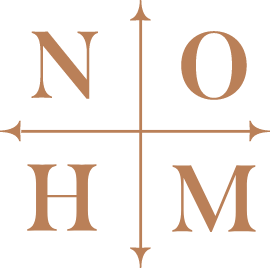At No Ordinary Hospitality Management, we recognise that our team is our most important asset and we are working hard to ensure that we put wellbeing first at all times.
That is particularly apt during Mental Health Awareness Week and, with this year’s theme being anxiety, we have opened up conversations about mental health and all the things in our daily lives that can affect us.
It’s common to feel like we’re too busy to take time out, but sometimes that’s exactly what is necessary – little pauses to help digest the day so tomorrow isn’t as clouded and here at NOHM, we want to encourage that.
Nobody is alone when struggling with mental health and we have used this week to raise awareness among the team about our Employee Assistance Programme through Hospitality Action.
It is available to every one of our employees to use anonymously if they are struggling in any capacity and we’ve distributed booklets to everyone to find out how they can access support when needed.
Anxiety disorders are the most common of all mental disorders and will affect nearly 30 per cent of adults at some point in their lives. They differ from normal feelings of nervousness or anxiousness because they involve excessive fear or anxiety, and typically cause reactions out of proportion to the circumstances.
Anxiety can produce both physical and emotional symptoms, people can experience restlessness, irritability, difficulty concentrating, chronic fatigue, nausea, dizziness, and worsening worry or fear over extended periods of time which can interfere with job performance and relationships.
Other common anxiety disorders include panic disorder, specific phobias, separation anxiety disorder, social anxiety, and selective mutism.
On a positive note, anxious people can be incredibly good researchers, critical thinkers, and analysers. In addition to naturally tending toward higher-level intellectual processing, anxiety can also teach you to be smarter as you go through a process of learning more about it.
We’ve alerted the team to ways to ease anxiety which include:
- Keeping active
- Eating well
- Spending time outdoors in nature
- Spending time with family and friends
- Reducing stress
- Doing activities, you enjoy
We’ve also created a new social committee in order to plan social events to bring teams even closer together and have an opportunity to relax and socialise away from work.


